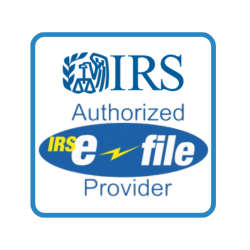Table of Contents
ToggleSometimes, doing your taxes can feel like a full-time past time. Figuring out how to save money and huge fees can take hours of work and research. But not every money-saving effort you can take for your taxes is necessarily legal.
Some efforts people take to avoid money ride the line between legal and criminal. For example, keeping money somewhere out of the country. Many people aren’t entirely clear on the legality that comes with offshore bank accounts.
But the IRS has been fairly clear in their feelings toward the practice. Keeping money in an offshore bank account can result in serious penalties levied against an individual. And as of now, the IRS and DOJ are on high alert when it comes to this form of tax evasion.
Why? And what else do you need to know about the laws that surround offshore bank accounts? Read on and we’ll make sure you get all the information you need.
What Is an Offshore Bank Account?
You may have heard the term ‘offshore bank’ in the media or in the context of broader news stories. If you are unfamiliar, an offshore bank account is simply a bank account that is regulated under an international banking license as opposed to the jurisdiction of one country.
In and of themselves, offshore bank accounts aren’t an illegal practice. They provide many benefits to their users, like increased safety and security. Many individuals prefer the independence of international institutions as compared to branches more reliant on the US economy.
That all being said, offshore bank accounts are also frequently used as a tool for criminal activity. Their lack of transparency and regulation has made them a popular place to hide undeclared income from local governments. Criminals leave unreported money in these accounts and then access them via wire transfer or debit card.
In this way, tax schemers keep their money out of the government’s hands and in their own pockets. Billions of tax dollars are withheld from the US government and held in such offshore accounts.
Wealthy criminals such as Paul Manafort have been found to have over 30 different offshore accounts with undeclared money spread throughout them. This has given such accounts a widely negative reputation in the media.
Busts on individuals like Manafort have put the DOJ on high alert for similar criminal activity. The IRS and DOJ work hand in hand to bust tax schemers and bring them to justice.
The IRS has an entire unit dedicated to investigating possible instances of tax avoidance or fraud overseas. Information gleaned from these investigations is used to pursue taxpayers with undeclared accounts, as well as bankers who are suspected of working as accomplices.
The IRS Dirty Dozen
Each year, the IRS publishes a list of common tax scams known as the ‘Dirty Dozen.’ These schemes may include anything from faking 1099 forms to tax preparer fraud. In the most recent version of the published list, hiding money or assets in unreported offshore accounts made the list.
When a taxpayer intentionally fails to disclose reportable foreign accounts to the government, they are risking a foreign account tax audit. This audit can lead to a full-blown criminal investigation into unpaid taxes. But how would the US government know if a person was keeping money offshore?
The Foreign Account Tax Compliance Act, also known as FATCA, threatens all foreign banks with extreme penalties if they fail to report American account holders. As such, these foreign institutions are highly motivated to work alongside the US government.
Reports of offshore bank accounts are then shared with the IRS, who can quickly check to see if these offshore accounts are accounted for in a person’s taxes. If it is not, the IRS can share that information directly with the U.S. Department of Justice and many other law enforcement networks around the world.
All of a sudden, the individual in question might be in hot water with the law.
Despite this, offshore banking is increasing in popularity. Millions of Americans have offshore bank accounts, and nondisclosure remains a big problem. The Department of Justice is trying to crack down on nondisclosure cases to prevent this problem from spreading.
How to Avoid Trouble With Your Offshore Account
You yourself might have an offshore bank account for totally legal and acceptable reasons. But if you don’t report these accounts properly, you can find yourself in huge trouble with the IRS and DOJ. Many people are hit with huge penalties each year not because they intentionally avoided their taxes, but because they simply didn’t know what steps to take.
Penalties can be quite serious. For those proven to have acted willfully, time behind bars is a likely possibility. Huge fees and civil penalties are likely to be slapped on to the individual as well. Even for those who are guilty of non-willful violations, civil penalties can be quite extreme.
If you have an offshore bank account and want to ensure you are cooperating with the IRS and DOJ, there are a few steps you need to take.
To report a foreign account, you need to take a number of actions online or via the mail. You’ll need to file a few forms, including the FinCEN Form 114 and Form 8938. Form 114 is a foreign bank account report, while Form 8938 is a statement that specifies your foreign financial assets.
In addition to these forms, all of your foreign income must be specified on Schedule B of your tax return. If you do all of these things prior to tax time, you should be in good standing with the IRS when it comes to your foreign accounts.
How to Disclose Offshore Accounts
The DOJ crackdown on offshore accounts comes on the heels of changes to government policy last year. For many years, the DOJ offered an amnesty program that allowed tax cheaters to come forward and avoid prison time. As the government increased efforts to stop tax schemers, many came forward on a voluntary basis.
The amnesty program began in 2009 but shuttered last September after nearly a decade of time. During that period, more than 56,400 individuals came forward about offshore tax schemes. Over eleven billion dollars were collected as part of these voluntary disclosures.
As of this particular tax season, willful tax avoiders will not receive amnesty even if they bring themselves forward. The IRS said in a statement that this program was ended due to a decline in use or demand. Only a few hundred disclosures were coming in annually over the past few years.
Coming Forward to the IRS
It’s not only willful tax avoiders that fail to disclose their offshore accounts. In many cases, it’s totally normal people that make a simple mistake.
Many individuals realize too late that they have not taken the proper reporting steps with their offshore accounts. If you’ve already turned in your tax return and failed to account for your foreign income, there could be huge penalties coming your way.
There are a few actions that one could take to help mitigate the damage already done and bring your accounts back into compliance. You need to take the time to reveal this foreign income to the IRS.
That means submitting a delinquent FBAR submission and a streamlined disclosure to the IRS. You’ll need to ensure that you are following all voluntary disclosure procedures to the letter. You should also ensure you’re looking at the most recent and updated form of regulations.
In this situation, it is more important than ever to be working with an experienced tax attorney. There are various strategies one might employ when attempting to disclose offshore accounts. A tax attorney will be able to evaluate the specifics of your situation and determine which strategy will be best for you to take.
Choosing a tax attorney with experience in international affairs can also increase your odds of success.
Complying with The Law
If you currently have money in one or more offshore bank accounts, it’s important that you comply with US laws regarding such accounts. Failure to disclose these accounts and their contents can have you hit with serious penalties or even time behind bars.
If you’ve failed to report these accounts in the past and now want to come forward, you’ll need the help of experienced tax professionals. Our emergency tax services can help to ensure you get the results you want from your interactions with the IRS.
Contact the Tax Professionals Today
Have questions about your particular situation? Need assistance fast? Contact us anytime for help with your case.





















